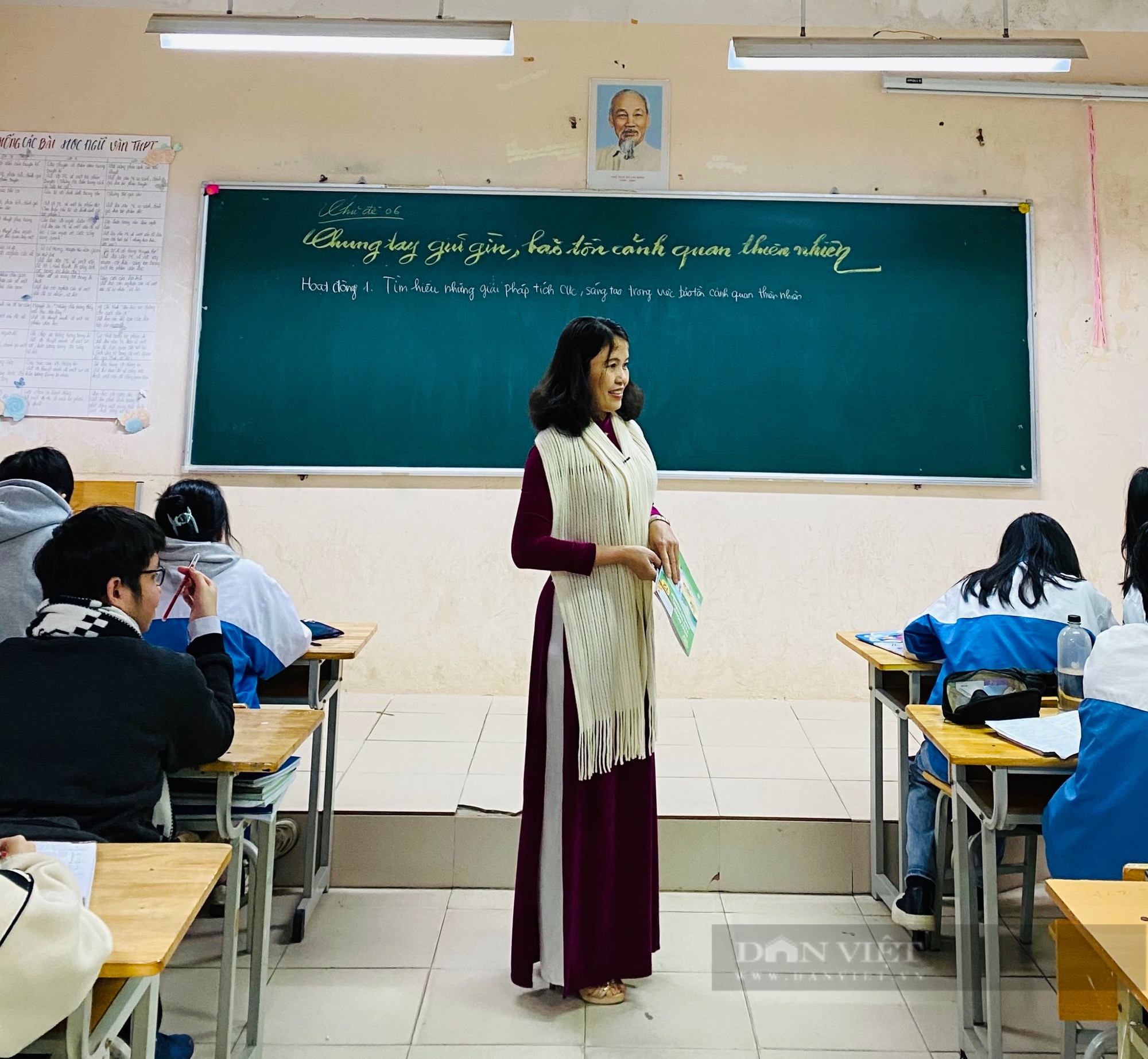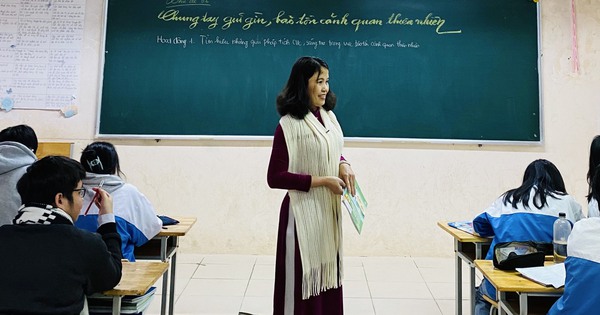How much additional income can teachers at autonomous schools expect?
In response to the heartfelt letters sent by thousands of teachers in Hanoi requesting adjustments to the income policy, some experts suggest that autonomous schools will have their own budget allocations and therefore may not be included in Resolution 46. However, teachers report that despite being autonomous, many schools do not receive any additional income or receive very little.
In an interview with Dân Việt newspaper, Mr. Nguyễn Văn Đường, a teacher at Phú Xuyên A High School in Phú Xuyên District, Hanoi, shared: “In addition to salaries and allowances, the 378 pilot autonomous schools that have contracted for educational services may receive an additional income boost. This additional income comes from the income stabilization fund as outlined in Article 14 of Decree 60/2021/NĐ-CP. However, many schools this year, like Phú Xuyên A High School, Phúc Thọ High School, or Hanoi Ethnic Boarding School, will not see this additional income. Other schools may receive between 2 to 10 million VND for the entire year, which averages out to just a few hundred thousand VND per month.”

Many teachers at autonomous schools report no additional income or only a small amount. Photo: NVCC
A significant number of teachers assert that besides their salary, there is no additional income from being at an autonomous school. This includes teachers from Vật Lại Secondary School, Xuân Mai High School, Mỹ Đức A High School, and Ba Vì High School, among others.
On the other hand, some schools that do receive additional income are facing financial difficulties. A teacher from Chúc Động High School in Chương Mỹ District, Hanoi, stated: “I receive an extra 5 million VND annually, but the budget for teaching and learning activities at our autonomous school is very tight.”
Teachers at Đồng Quan High School in Phú Xuyên District mentioned that this year they received 2 million VND, highlighting that both the school and its staff are under financial pressure, with heavy workloads and a lack of attention to teachers’ living conditions. They noted that many benefits have been reduced compared to non-autonomous schools due to limited funding.
Over 6,000 Teachers in Hanoi Send Letters Requesting Adjustment of Additional Income Policy
Ms. Hoàng Thị Chung, a teacher at Đền Lừ Primary School in Hoàng Mai District, Hanoi, expressed: “I have been a public school teacher since graduating with my degree, but I have not been promoted because I am only a direct teaching staff member, and I do not receive any additional income monthly. I sincerely hope that the leaders will reconsider so that teachers like us do not suffer disadvantages.”
Mr. Vũ Hồng Quân, a teacher at Minh Khai High School, mentioned that the additional income during Tet was 3 million VND, with a Tet bonus of 2 million VND. “We feel disadvantaged by policies because schools collect tuition on behalf of the state and are responsible for expenditures. In essence, we are not autonomous in raising tuition fees; we are merely acting as agents for the state. Therefore, we hope the city will consider allocations according to Resolution 46 so that we can receive fair treatment like other teachers,” Mr. Quân stated.
Echoing this sentiment, Mr. Nguyễn Văn Đường emphasized: “If we are truly autonomous, then the institution must be self-sufficient in revenue and expenditures, managing finances as a business. Currently, we receive salaries from the budget but are categorized as 100% autonomous and stripped of state benefits. Are we still considered education officials?”
Previously, over 4,000 teachers in Hanoi had sent letters requesting adjustments to the additional income policy. According to Resolution 46/2024/NQ-HĐND dated December 10, 2024, by the Hanoi People’s Council regarding the regulation of additional income for officials, civil servants, and public employees working in state agencies, political organizations, the Vietnam Fatherland Front, socio-political organizations, and public service units, teachers believe this demonstrates the concern of city leaders and representatives towards staff on enhancing income and improving living conditions.
“As city officials under municipal management, we are excited to see the resolution implemented in real life. However, the resolution limits the beneficiaries to civil servants and public employees. Specifically, those working in public service units with income not fully covered by the state budget will be excluded, which contradicts the principle that all municipal officials should benefit.”
This creates inequality among municipal officials, with some receiving additional income while others do not, despite both being public officials and the funding derived from surplus salary reform in the state budget at various levels.
Moreover, public autonomous schools, whether partially or fully autonomous, are essentially public service units still entirely supported by the state budget. The revenue from these units is tuition fees, which will be deducted when higher authorities allocate the budget. Tuition collected will be used to supplement salary expenditures and support educational development and professional activities rather than increasing income. Therefore, these public schools are still fundamentally funded by the state budget for all regular expenditures,” the letter stated.
Currently, over 6,000 teachers have joined the group and are urging city leaders to reconsider and adjust the beneficiaries of additional income according to Resolution 46/2024/NQ-HĐND to ensure that all municipal officials can receive this benefit.
